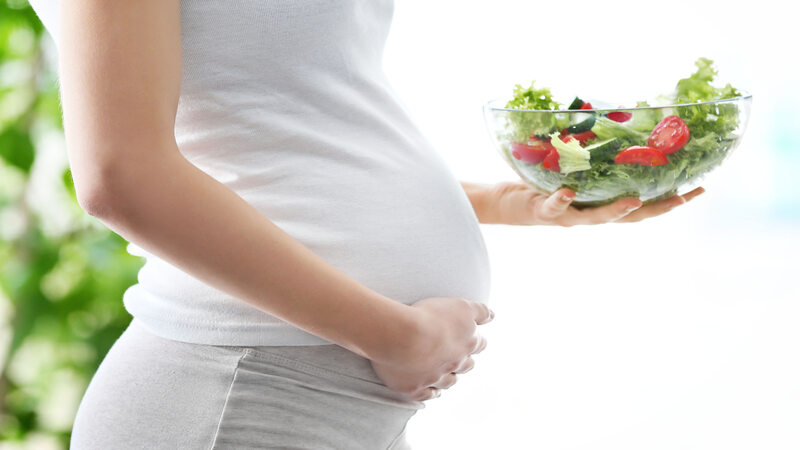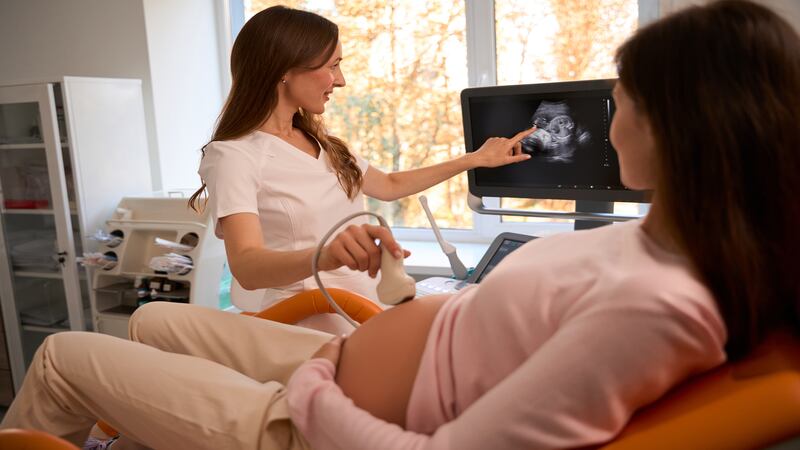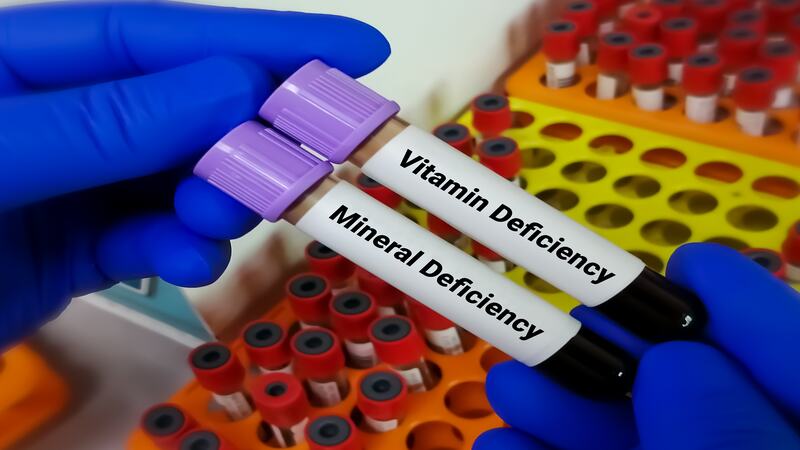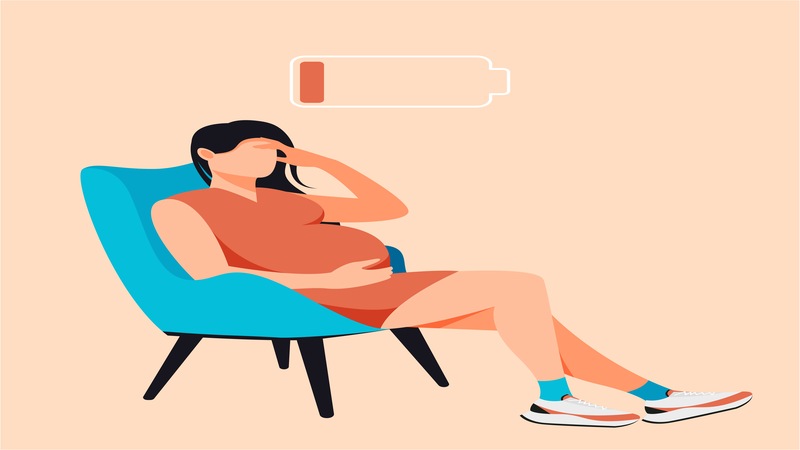
Pregnancy is a physiological condition with higher nutritional demands for maternal and fetal health (1). Your pre-pregnancy diet may not be sufficient to meet the additional RDA for calories, protein, and all micronutrients. Being underweight and failing to maintain adequate prenatal health are the leading causes of malnutrition among pregnant women.
To address these nutritional inadequacies, a nutrient-dense diet is essential throughout pregnancy. A healthcare physician can provide individualized advice on dietary changes and supplementation to maintain optimal nutritional intake during pregnancy (2).
What Is Nutritional Deficiency?
Nutritional deficiency during pregnancy is a serious health risk. Inadequate intake of vital nutrients can harm both maternal and fetal health. Malnourished pregnant women are more likely to have infections, anemia, lethargy, and exhaustion, all of which can lead to additional health issues. Furthermore, inadequate nutrition during pregnancy is associated with preeclampsia, low birth weight, premature birth, impaired fetal development, intrauterine growth retardation (IUGC), and stillbirth. A well-balanced diet that meets RDAs for all nutrients is vital for successful pregnancy outcomes.
Significance Of Maintaining A Healthy Diet

Maintaining healthy eating habits is an essential aspect of the pre- and post-pregnancy phases (3). Notably, the demands for additional energy and nourishment begin in the early weeks of the first trimester. The future health of the infant is entirely dependent on the mother’s current nutritional status. So, try to keep your baby’s environment healthy for his or her healthy development.
Proper diet throughout pregnancy is essential to avoid nutritional imbalances that can interfere with fetal development. Certain macro- and micronutrients are necessary for embryogenesis, fetal growth, and maternal health, as energy, protein, vitamin, and mineral requirements might arise during the pregnancy phase (4). By including more dietary micronutrients in their daily diets these nutritional deficiencies can be met up. Notably, before starting any supplementation during pregnancy, ask your doctor. The various food sources for good nutrition are :
1. Energy sources:
- Cereals (wheat, rice, millet, etc.),
- Cooking oils/fats, and
- Nuts and oil seeds
2. Protein sources
- Milk, milk products, fish, meat, and poultry,
- Pulses, nuts, and oil seeds.
3. Vitamins and minerals sources
- Fresh seasonal fruits and vegetables
- Dr. prescribed supplements
The specific micronutrients required to maintain the mother’s health and fetal growth are (5):
| Nutrient | RDA | Food Sources |
| Iron | 38 mg | Dark Green leafy vegetables, red meat, whole pulses, legumes, beans, tofu/paneer, beets, eggs, citrus fruits, broccoli, brussels sprouts, dried fruits, and nuts. |
| Folate | 600 mg | |
| Calcium | 1000 mg | Milk & Milk products, whole cereals, millets (Ragi), Oilseeds (sesame seeds) |
| Iodine | 220 mg | Seafood, iodized salt |
| Vitamin A | 3300-5000 IU | Liver, fish oils, milk, egg yolk, leafy vegetables, yellow and orange fruits and vegetables |
| Zinc | 11 mg | nuts, beans, and fortified cereals |
How Does Maternal Nutrition Influence Fetal Development?

Maternal nutrition has a major impact on fetal development. All of the essential nutrients provide a strong foundation for both herself and the developing fetus. Deficiency of any micronutrients during pregnancy certainly causes difficulties, such as:
| Nutrient | Deficiency causes | Signs & symptoms of deficiency |
| Iron (6) |
|
|
| Iodine |
|
|
| Calcium (7) and Vitamin D |
|
|
| Zinc |
|
Not significant, but hair loss in some cases. |
| Magnesium |
|
|
| Vitamin K |
|
Not significant |
| Vitamin B12 & Folate |
|
|
A pregnant woman must consume a variety of foods in small, frequent meals throughout the day. The increased nutritional demand will help preserve the health of both herself and her developing fetus.
Common Nutritional Deficiencies During Pregnancy

Most women do not follow dietary recommendations for increased nutritional requirements during pregnancy. Overnutrition, malnutrition, and nutritional imbalances raise the risk of pregnancy problems and non-communicable diseases in both mothers and their children. Common nutritional deficiencies during pregnancy are:
- Calcium,
- Vitamin A,
- Iron,
- Folate,
- Iodine,
- Vitamin D,
- Vitamin C, and
- Zinc
During pregnancy, it is preferable to eat nutrient-dense foods such as nutrient-packed, fresh seasonal fruits, dark green leafy vegetables, lean meats, whole grains, and dairy products. These foods are vital for providing the building blocks needed for your baby’s growth and development. Remember, your every bite counts towards providing nourishment!
Effect Of Nutritional Deficiencies In Pregnancy And On The Foetus

Pregnancy demands increased nutritional intake to support fetal growth and maternal health starting with conception. Proper nutrition is crucial for optimal fetal growth and development and to prevent complications (8). Deficiencies in folic acid, iron, calcium, and vitamin D can lead to stillbirth, low birth weight, premature delivery, small for gestational age, wasting and developmental delays, and intellectual disorders in the baby. Maternal health is also at risk with conditions like anemia, gestational diabetes, preeclampsia, hypertension, postnatal depression, fetal deaths, and maternal mortality.
How Can I Manage My Nutrition During Pregnancy?

Optimal nutrition is vital during the “first 1000 days” of a healthy pregnancy and for the first two years of a baby’s life (9). Here are a few considerations for managing your nutrition during pregnancy
- Aim for a balanced diet that includes fresh seasonal fruits and vegetables, whole grains and millet, lean proteins, and dairy products.
- Consider taking prenatal supplements as advised by your healthcare professional.
- Prioritize staying hydrated and reducing caffeine.
- It is not recommended to consume alcohol, smoke, or raw shellfish when pregnant.
- Do not miss your regular prenatal check-ups to assess your nutritional health.
- If you are experiencing chronic nausea or vomiting, talk to your doctor ASAP.
Eating adequately throughout pregnancy is critical to your baby’s growth and development. In a healthy pregnancy, a well-balanced diet rich in necessary nutrients is required for the development of strong bones and muscles, as well as brain growth. It maintains maternal energy levels, promotes healthy weight gain, and lowers the risk of pregnancy problems. Remember that it’s not only about eating healthy; it’s about eating sufficient to sustain you and your baby.
FAQ’s
1. How Does Poor Nutrition Affect Pregnancy?
Poor nutrition affects both mother and baby, resulting in issues such as low birth weight, premature birth, stillbirth, and an increased risk of infection. The baby may potentially have developmental delays and long-term health problems.
2. What Are The Effects Of Poor Nutrition?
Maternal malnutrition has a direct impact on fetal growth and development, with far-reaching repercussions. Dietary deficiencies in critical nutrients can lead to anemia, preeclampsia, and an increased risk of delivery difficulties. Furthermore, insufficient nutrition might harm the baby’s brain development, immune system function, and overall health.
3. What Are The Nutritional Deficiencies In Pregnancy ?
Common nutritional deficiencies during pregnancy include iron deficiency anemia, folic acid, which prevents neural tube defects in newborns, and iodine, which is necessary for brain development. Additional nutritional requirements include protein, calcium, vitamin D, zinc, and omega-3 fatty acids (DHA).
4. What Is The Best Nutrient For Pregnancy?
A well-balanced diet rich in macro and micronutrients is optimal for maternal and fetal health.
5. Which Food Supplement Is Best For Pregnancy?
“The best food supplement for pregnancy is a balanced diet.” Always consult a doctor for individualized advice tailored to your specific needs and health problems.
References
- Santander Ballestín S, Giménez Campos MI, Ballestín Ballestín J, Luesma Bartolomé MJ. Is Supplementation with Micronutrients Still Necessary during Pregnancy? A Review. Nutrients. 2021 Sep 8;13(9):3134 – https://pubmed.ncbi.nlm.nih.gov/34579011/
- Oh C, Keats EC, Bhutta ZA. Vitamin and Mineral Supplementation During Pregnancy on Maternal, Birth, Child Health and Development Outcomes in Low- and Middle-Income Countries: A Systematic Review and Meta-Analysis. Nutrients. 2020 Feb 14;12(2):491 – https://pubmed.ncbi.nlm.nih.gov/32075071/
- Killeen SL, Geraghty AA, O’Brien EC, O’Reilly SL, Yelverton CA, McAuliffe FM. Addressing the gaps in nutritional care before and during pregnancy. Proc Nutr Soc. 2022 Mar;81(1):87-98. – https://pubmed.ncbi.nlm.nih.gov/35760589/
- Burke RM, Leon JS, Suchdev PS. Identification, prevention and treatment of iron deficiency during the first 1000 days. Nutrients. 2014 Oct 10;6(10):4093-114. – https://pubmed.ncbi.nlm.nih.gov/25310252/
- A Brief Note on Nutrient Requirements for Indians, the Recommended Dietary Allowances (RDA) and the
Estimated Average Requirements (EAR), ICMR – NIN, 2020 – https://www.nin.res.in/rdabook/brief_note.pdf - Means RT. Iron Deficiency and Iron Deficiency Anemia: Implications and Impact in Pregnancy, Fetal Development, and Early Childhood Parameters. Nutrients. 2020 Feb 11;12(2):447 – https://pubmed.ncbi.nlm.nih.gov/32053933/
- Shlisky J, Mandlik R, Askari S, Abrams S, Belizan JM, Bourassa MW, Cormick G, Driller-Colangelo A, Gomes F, Khadilkar A, Owino V, Pettifor JM, Rana ZH, Roth DE, Weaver C. Calcium deficiency worldwide: prevalence of inadequate intakes and associated health outcomes. Ann N Y Acad Sci. 2022 Jun;1512(1):10-28. – https://pubmed.ncbi.nlm.nih.gov/35247225/
- Farias PM, Marcelino G, Santana LF, de Almeida EB, Guimarães RCA, Pott A, Hiane PA, Freitas KC. Minerals in Pregnancy and Their Impact on Child Growth and Development. Molecules. 2020 Nov 30;25(23):5630 – https://www.ncbi.nlm.nih.gov/pmc/articles/PMC7730771/
- Kominiarek MA, Rajan P. Nutrition Recommendations in Pregnancy and Lactation. Med Clin North Am. 2016 Nov;100(6):1199-1215. doi: 10.1016/j.mcna.2016.06.004 – https://www.ncbi.nlm.nih.gov/pmc/articles/PMC5104202/
